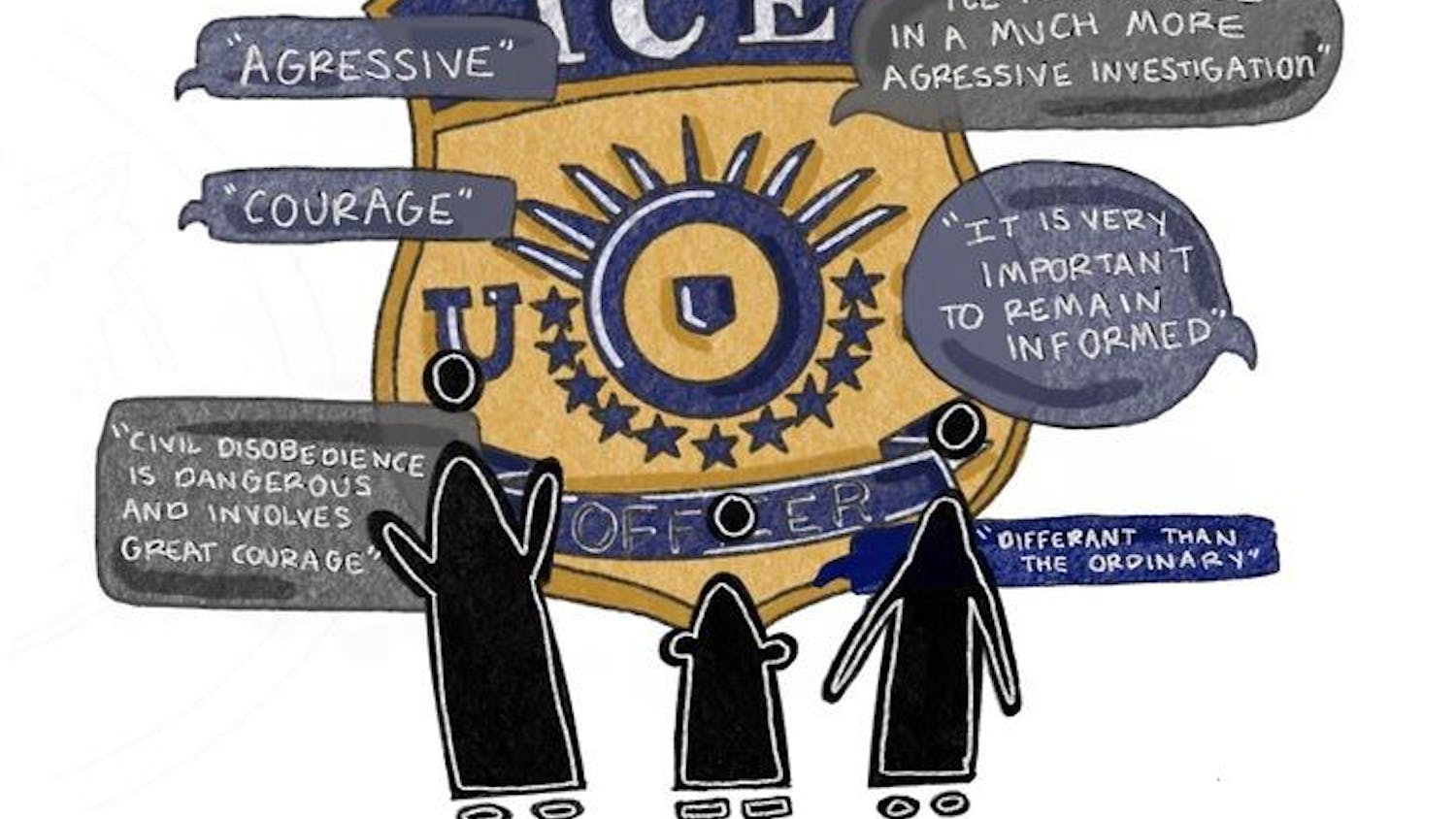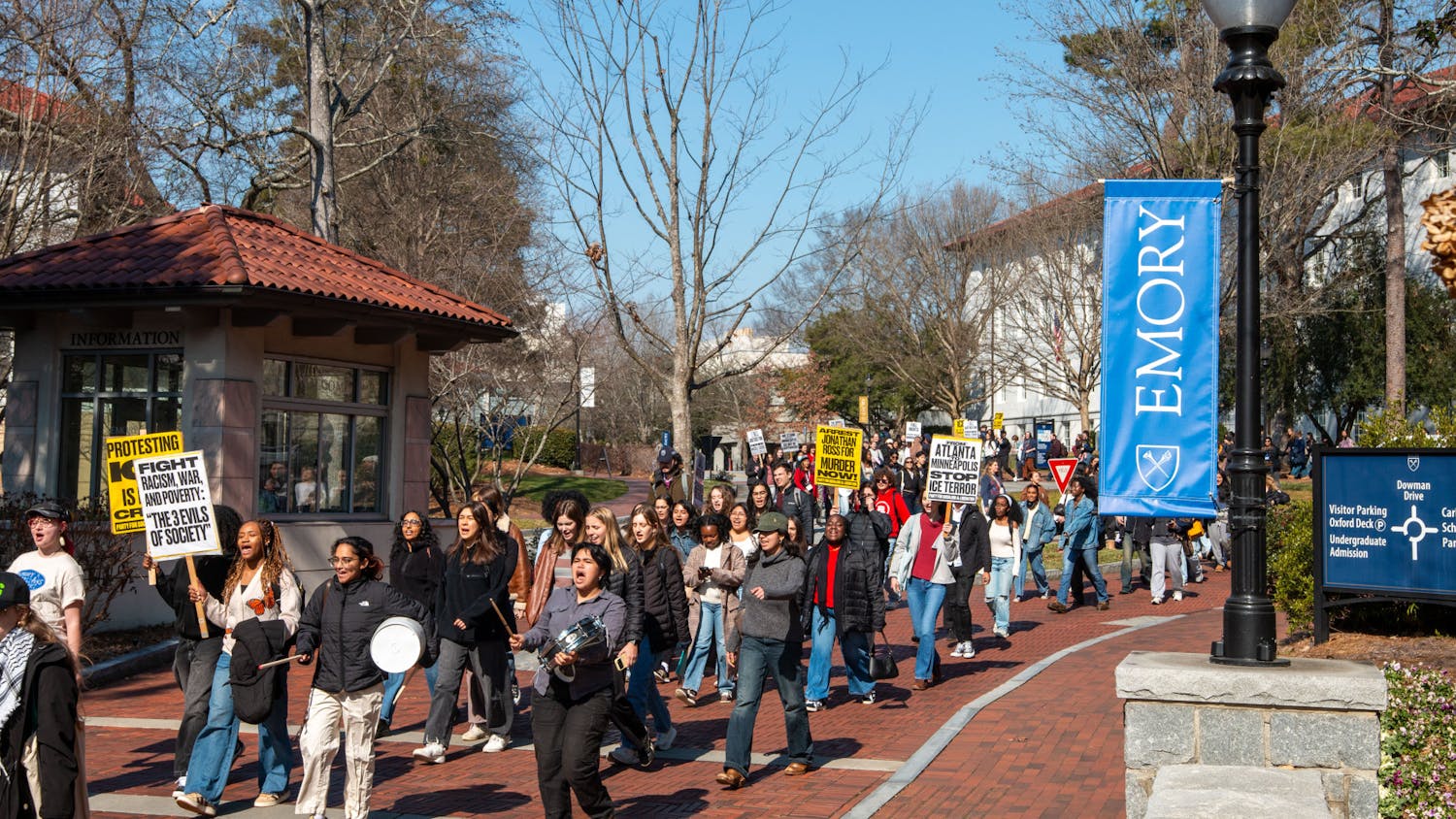University President Claire E. Sterk, with 47 other college presidents, signed a letter Feb. 2 denouncing President Donald J. Trump’s recent executive order on immigration. Sterk’s endorsement of the letter, which deemed the order a threat “to both American higher education and the defining principles of our country,” drew ire from student group Emory College Republicans (ECR).
Sterk explained her decision to sign the letter in a Feb. 6 all-Emory email, writing that Trump’s action “hinders Emory’s ability to be a global research university and curtails our global impact.” She also reaffirmed that she would support all students and faculty members regardless of their faith or nationality. Some departments and faculty members also condemned the executive order by sending statements to University administration and signing an online petition.
ECR President and College senior Christian Zimm denounced Sterk’s decision to sign the letter in a Feb. 2 statement on the group’s Facebook page, citing her action as part of University administration's “continued alienation of conservative students on campus.”
College junior and ECR executive board member Julia Skyhar and Zimm said that Zimm’s statement, which defends Trump’s order as a temporary and necessary action to protect the country from terrorists, represents the ECR stance on the Feb. 2 letter.
“The school administration is taking it upon themselves to impose their political beliefs,” Zimm said in an interview with the Wheel. “It’s quite hypocritical for the University to discuss diversity without really taking into account opinions that are different than [its] own.”
Trump’s executive order bars Syrian refugees from entering the country indefinitely and suspended the immigration of citizens from seven Muslim-majority countries for 120 days. The letter by the university presidents’ characterizes it as “unfairly target[ing] seven predominantly Muslim countries in a manner inconsistent with America’s best principles and greatest traditions.”
A Seattle federal judge indefinitely suspended Trump’s order nationwide Feb. 3, ruling that states faced “immediate and irreparable injury” in enforcing the ban, according to The New York Times. The 9th Circuit Court of Appeals heard appeals from U.S. Department of Justice attorneys Tuesday evening and will decide the immediate fate of the order sometime this week.
The Emory College Faculty Senate passed a Jan. 27 motion condemning the executive order on immigration, according to College Senate President and Professor of Pedagogy Christopher Beck.
More than 200 Emory faculty members, including Interim Dean of the College of Arts and Sciences Michael A. Elliott, also denounced Trump’s executive order on immigration by signing an online petition entitled “Academics Against Executive Immigration Order.” The petition, supported by more than 30,000 academic professionals and 62 nobel laureates as of Tuesday night, deems the order “discriminatory and detrimental to national interests.”
Elliot told the Wheel that he believes the executive action imperils the University’s mission to recruit the best students staff and faculty globally.
“I believe there's a consensus among College faculty that restricting immigration from particular countries will make it harder to afford our mission of producing knowledge and educating students,” Elliot said. “I think there are for sure faculty who are affected directly by the travel ban because their own family or friends are; there’s a great deal of anxiety.”
Elliot said that he’s glad that the University is acting in the interest of its current students, faculty and staff.
“I think we’re being aggressive [in making] the case to the larger public about why this [order] does imperil our mission,” Elliot said.
The College dean said he received statements denouncing the order from faculty members in the Environmental Science Department and the Department of Middle Eastern and South Asian Studies.
Goodrich C. White Professor and Environmental Sciences Department Chair Uriel Kitron said that some Environmental Sciences department faculty members felt that the executive orders — including the order on immigration — placed America in “uncharted waters” and that students, faculty and staff are worried about the fate of the country.
“[The orders] call for a very strong response,” Kitron said. “Even though universities now are not directly targeted, we are very much on the lens. But beyond that, things we believe in are being threatened. And I think universities should be at the forefront of responding to them.”
Julia Munslow and Leigh Schlecht contributed reporting.
Read More
Trending







